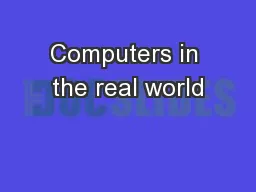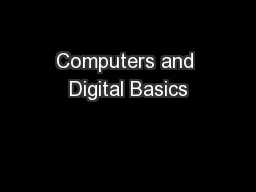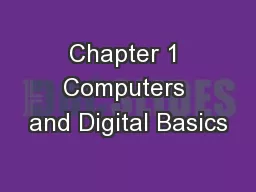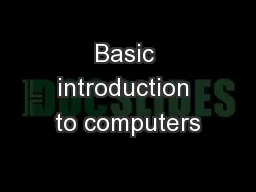PPT-Can Computers Understand Their Own Programs?
Author : calandra-battersby | Published Date : 2016-05-13
Prof Sir Tony Hoare 05 th July 2012 Auxiliary question 1 Can people understand their own rational thought processes 1 Aristotle Prior Analytics 350 bce classicsmiteduAristotlepriorhtml
Presentation Embed Code
Download Presentation
Download Presentation The PPT/PDF document "Can Computers Understand Their Own Progr..." is the property of its rightful owner. Permission is granted to download and print the materials on this website for personal, non-commercial use only, and to display it on your personal computer provided you do not modify the materials and that you retain all copyright notices contained in the materials. By downloading content from our website, you accept the terms of this agreement.
Can Computers Understand Their Own Programs?: Transcript
Download Rules Of Document
"Can Computers Understand Their Own Programs?"The content belongs to its owner. You may download and print it for personal use, without modification, and keep all copyright notices. By downloading, you agree to these terms.
Related Documents














